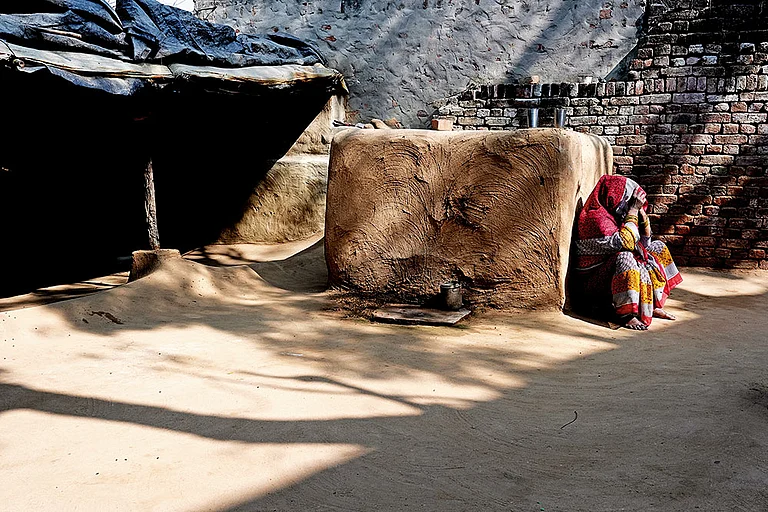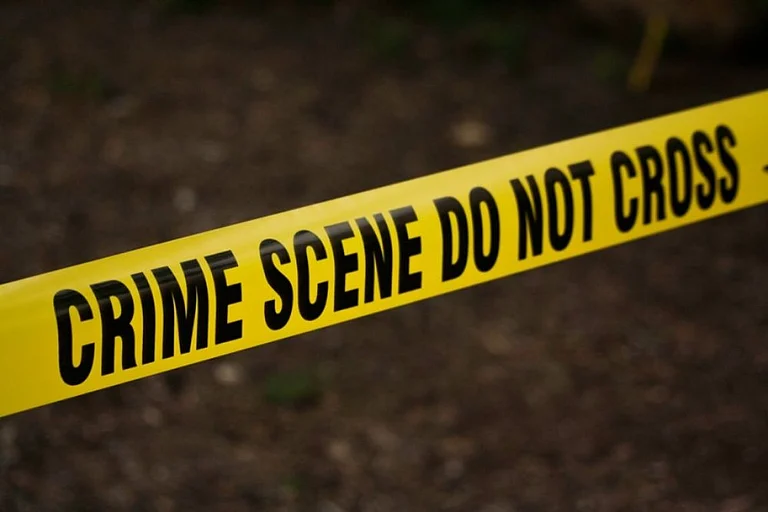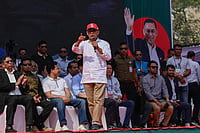
The Bhima-Koregaon event in 2018, a Dalit-led commemoration, was followed by violence—leading to the arrest of 16 activists, academics, and lawyers.
All accused were charged under the harsh UAPA law, allowing long detentions without evidence or trial—Fr Stan Swamy died in custody.
Eight of the 16 have been granted bail, but some remain jailed as courts have not yet ruled on their discharge petitions.
On December 31, 2017, thousands of people gathered at Shaniwar Wada, near Pune in rural Maharashtra, to commemorate the 1818 victory of an East India Company force—which consisted of many Dalit Mahar soldiers—in the Third Anglo-Maratha war. That battle had ended in the defeat of the Peshwa army, and had, over time, come to symbolise Dalit resistance against oppression.
A day later, lakhs more gathered at a memorial, constructed by the British, in Perne village, also in rural Pune, to remember those who had perished in the Anglo-Maratha war 200 years earlier. It is known as the Bhima-Koregaon battle after the villages where it was fought.
The January 1, 2018, gathering was mostly of Dalits, who remember the war as a victory of anti-caste resistance over the elite-caste Peshwai—the hereditary rule of the Peshwas who headed the Maratha Empire.
However, the new-year gathering—a celebration of sorts—turned violent. One died and dozens were injured when stone-pelting began at Perne. And thus was sparked what is widely known as the Elgar Parishad-Bhima Koregaon case, which has been meandering through the Indian legal system for nearly eight years—with no outcome in sight.
This sprawling legal battle has had 16 academics, lawyers, teachers and human rights activists arrested, facing allegations of hatching a ‘Maoist’ conspiracy. The case itself has now become a stark symbol of state power targeting dissent. Now, with trials stalled and bails hard won, the saga reflects what one of the arrested persons, Father Stan Swamy, who died in prison, once said: “As long as the fight for justice continues, the oppressed live.”
The December 31, 2017 gathering called the Elgar Parishad was convened as an anti-caste conclave at the Shaniwarwada Fort, reportedly by well-known anti-caste leaders including tribal rights activist Soni Sori, Vanchit Bahijan Aghadi leader Prakash Ambedkar, late Rohit Vemula’s mother Radhika Vemula and several others. Speeches delivered at the event called for the annihilation of caste and defence of constitutional values.
In the days that followed—following the violence at the Bhima Koregaon event the next day—that initial gathering provoked a backlash from several groups, who branded it as “anti-Hindu”.
Initially, it was believed that the violence on January 1, 2018 was provoked by another event that occurred on 29 December 2017—when the samadhi of a Mahar, Govind Gaikwad, also situated in rural Pune’s Wadu village—was desecrated. The blame for this fell on Hindutva activists Milind Ekbote and Sambhaji Bhide, against whom the Pune (Rural) police even filed an FIR (while pursuing a probe against the mob that sparked the January 1, 2018 violence).
However, as the case dragged on, Ekbote and Bhide were dropped from the list of those being probed.
Instead, Pune City Police redirected scrutiny against those who had allegedly organized the Elgar Parishad gathering—claiming that it is their speeches which had led to violence the next day.
That is how 16 people—including activist Sudhir Dhawale, Jesuit priest Fr Stan Swamy, labour rights lawyer Sudha Bharadwaj, professor Shoma Sen, advocate Sudheendra Gadling, researcher-activist Rona Wilson, environmentalist Mahesh Raut, activist and lawyer Arun Ferreira, pro-democracy activist Gautam Navlakha, Vernon Gonsalves, poet Varavara Rao, linguist professor and anti-caste activist Hany Babu, professor and Dalit rights’ activist Anand Teltumbde, and Kabir Kala Manch members Sagar Gorkhe, Ramesh Gaichor and Jyoti Jagtap—were arrested in the days, weeks and months following the December 29 and 31 events in 2017 and the January 1, 2018 event.
The Unlawful Activities (Prevention) Act (UAPA) was invoked against them all, leading to their prolonged incarceration—the UAPA makes achieving bail virtually impossible due to the seriousness of the charges—though several have been granted bail after long periods in prison, while Fr Stan Swamy perished in prison.
The arrestees—nicknamed ‘BK-16’ by the media—include lawyers, poets, professors and activists, many of them who have simply declared they were unconnected to the events unfolding at Pune in those days of 2017 and 2018.
Human rights lawyer Mihir Desai told Outlook: “The idea [behind the case] was to silence those who speak for the marginalised, to create a chilling effect on dissent. The evidence is shaky, but UAPA ensures they don’t need to prove much to keep people locked up.”
The Caravan magazine later revealed in an investigation that digital evidence gathered from the devices seized from several of the accused, pivotal to this probe, was likely planted via malware.
In 2020, the National Investigation Agency (NIA) took over the investigation of this case and claimed that some of the activists, professors, etc., had hatched a plot to assassinate Prime Minister Narendra Modi and overthrow the government, and that they were linked to the banned CPI (Maoist) outfit.
The case hinges on a vast charge sheet that cites “incriminating letters”, protected witness testimonies, and alleged illegal fund flows.
Desai underscored the case’s flaws at a recent gathering (September 13, 2025), where he spoke on the case. He said, “They [the investigators] rely on so-called letters that don’t hold up under scrutiny. No proper chain of custody, no forensic integrity. It’s a house of cards meant to collapse under its own weight—after ruining lives.”
He recalled Fr Stan Swamy’s call to him in 2018, after news of his alleged involvement in the case. “…in a very soft voice he [Fr Stan Swamy] told me, ‘Mihir, who is Bhima?’ I had to tell him that Bhima-Koregaon is not a who but a what. It’s a place,” Desai recalls.
Human rights activist Harsh Mander, reflecting on the case on the sidelines of the gathering, held on September 13, said, “The Bhima-Koregaon arrests are a deliberate assault on the soul of India’s democracy. These are people who gave their lives to the marginalised, yet they are painted as enemies of the state.”
Prominent civil rights advocate Teesta Setalvad also said on the sidelines of the event: “This case is a textbook example of how the state uses laws like UAPA to criminalise dissent. The evidence is flimsy, but the intention is clear: to silence voices that challenge oppression.”
As of September 2025, only 48 of 363 witness statements have been recorded in the Bhima-Koregaon case.
However, bail to some accused has come as a relief. In January 2025, Rona Wilson and Sudhir Dhawale were released after six years, the Bombay High Court citing their “prolonged detention” [without trial] as the reason.
Most recently, on September 16, 2025, the Supreme Court granted Mahesh Raut six-week interim bail for medical reasons—his rheumatoid arthritis.
On September 17, 2025, the Supreme Court will hear Surendra Gadling’s plea, also jailed since 2018.
His advocate, Anand Grover, decried the delay in the September 13 gathering. “No charges have been framed...” he said.
So far, eight of the BK-16 have been granted bail. However, of them, Jyoti Jagtap, Sagar Gorkhe and Ramesh Gaichor still remain incarcerated as their discharge petitions are pending.
Gautam Navlakha, released on bail in 2024, noted at the event: “The state wants to break us, but each release strengthens our resolve to fight for justice.”
At the September 13 event, Irfan Engineer, director of the Institute of Peace Studies and Conflict Resolution, framed the arrestees as people who had offered “resistance to suppression of freedom of expression [and] to bulldozing of democracy.”
Desai, too, said: “This isn’t just about the BK-16. It’s about what kind of India we want—one where dissent is criminalised, or one where justice prevails?”
Lawyer Vrinda Grover, who has closely followed the case, added at the event: “The BK-16 are not just individuals; they represent the conscience of a nation. Their persecution is a warning to anyone who dares to speak truth to power.”
The case’s reliance on UAPA, a law that allows detention for prolonged periods, even if the trial stalls or fails to begin, has drawn sharp criticism. “UAPA is a tool to bypass due process,” said Meenakshi Ganguly of Human Rights Watch.
“It keeps people in jail for years without evidence, eroding the very rights it claims to protect.” The stalled trials, coupled with questionable evidence, underscore a systemic issue: the state’s ability to punish without proof.



























